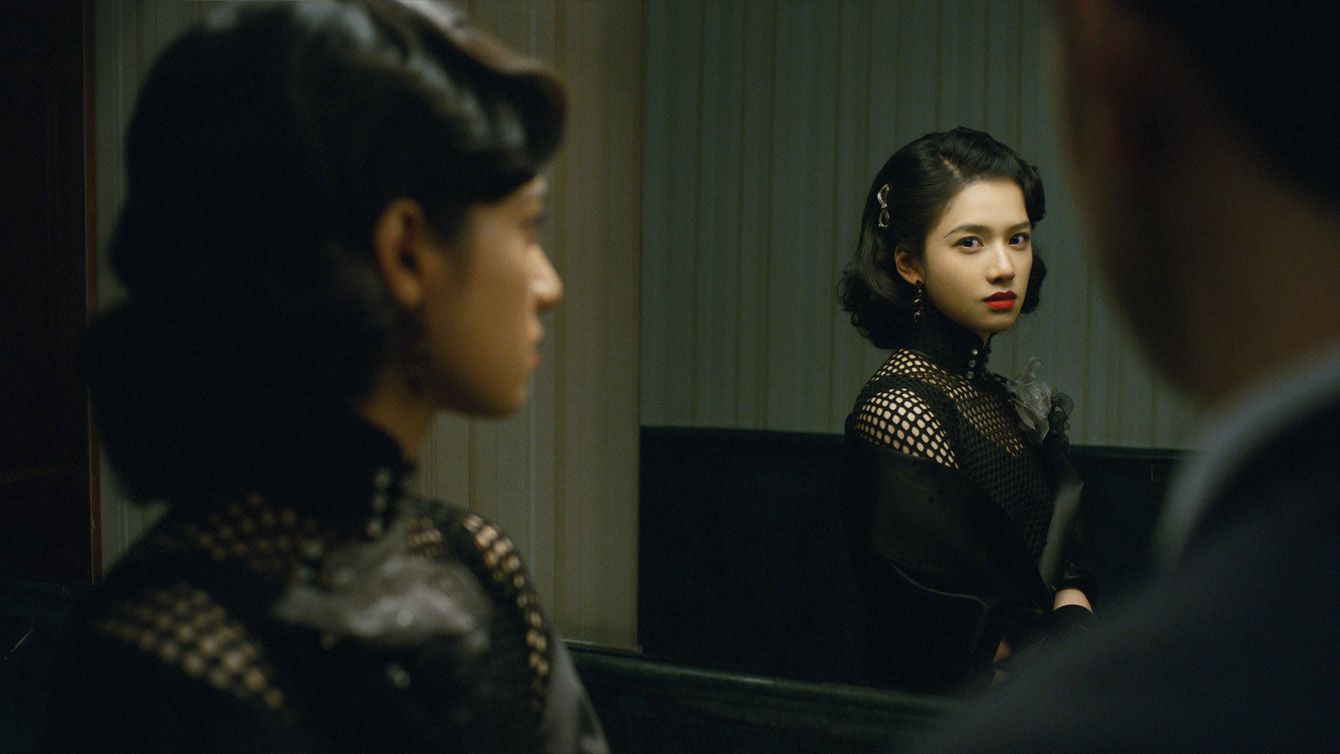Hidden Blade (Cheng Er, 2023)

When Hidden Blade was first announced, it was called Anonymous (a literal translation of its Chinese title “無名”) and stated to be the third part of a propaganda trilogy which included Andrew Lau’s 2021 COVID drama Chinese Doctors and the first (but not the second?) part of The Battle of Lake Changjin, directed by Dante Lam, Tsui Hark, and Chen Kaige. In theory, I suppose, Hidden Blade could count as a propaganda film, in that its heroes are members of the Communist Party’s resistance to the invading Japanese during World War II. But a propaganda film requires a certain directness of storytelling, a clear and unequivocal message about what it’s trying to sell. Anyone who had seen director Cheng Er’s last film, 2017’s The Wasted Times, would know that however ultimately patriotic his film might be, it certainly would not feature simplistic themes and an easy to understand story. And given that the second part of Lake Changjin (which, again, not part of the trilogy?) complicates the first one’s obvious message in interesting ways, perhaps someone at the Bona Film Group is more interested in producing good movies than it might seem.
The Wasted Times was, like Hidden Blade, set before and during the Anti-Japanese War. It’s a tangled story of gangsters and actresses, rape and revenge, told with exquisitely designed images and cut in an order that makes more emotional than chronological sense. It’s one of the very best mainstream Mainland films in recent years, though it has almost no following here in the US. Hidden Blade is told in much the same way, with scenes playing out coherently in their moment, but assembled completely out of order, such that we have an early scene like a compelling interview between two characters, played by Tony Leung and Huang Lei, where Huang is apparently attempting to betray his comrades to the collaborationist government intelligence agency represented by Leung, but we don’t know why, or really who any of the people they talk about are, or if one or both of them is lying about who they say they are. The scene itself is beautifully acted by the two men, filled with gorgeous period details, sounds (the scratches of Leung’s fountain pen) and exquisitely composed and cut together images (Hidden Blade is less flashy in its compositions than The Wasted Times, but no less stunning for it), and shorn of the context of plot, it’s those things we focus on, as well as the minutiae of the actors' performances, to give us any clue as to what is going on. Cheng builds his movie out of scenes like this, occasionally throwing in a title card to orient us in time and place (the film ultimately stretches from 1937 to 1946, Shanghai to Hong Kong). Often looping back to a scene just before or just after one we’ve already watched to give us a little bit more context before moving on to the next mystery.
And that’s what distinguishes Hidden Blade from other wartime spy movies. Films like Kim Jee-won’s brilliant 2016 The Age of Shadows, or Zhang Yimou’s Cliff Walkers are suspense movies, building tension by having the characters explaining their mission, and then following them as they attempt to achieve it despite the various obstacles that arise. Occasionally they’ll have a twist where someone turns out to not be who we thought they were, but that merely resets the terms of the suspense game. Cheng Er, in both Hidden Blade and The Wasted Times, is not after suspense but rather mystery: the tension (and fun) of the film lies not in anticipating what comes next, but in trying to figure out what is happening and why. The approach is a perfect match for a spy story, one where no one is who they claim to be and every conversational slip could be your doom.
To this end, Anonymous is a more fitting title: we don’t know who any of these people are, and most of them aren’t even named. Tony Leung plays The Director, head of the puppet government’s intelligence division in Shanghai, where he reports to The Minister (Da Peng) and a Japanese Army Officer (Mori Hiroyuki). Leung has two subordinates, one who does not have glasses (popstar Wang Yibo) and one who does (Wang Chuanjun). Along the way three women are revealed to be spies, but only one of them, Mrs. Chen (Zhou Xun, still fighting the war she started in Ann Hui’s Our Time Will Come) has a name. At least two of the women are secretly married to two of the men, and at least one of the men is a communist agent. Leung is, as always, exceptional, freely switching from affable bureaucrat to cold-hearted killer in the blink of an eye, and acquitting himself quite well in the film’s biggest fight scene, despite his now-advanced age. Wang Yibo as well excels in his fights, which you’d expect given his extensive dance background. But most of Hidden Blade’s action takes place in conversation, or rather the spaces in-between the words said in conversation. As the story unfolds, backwards and forwards and sideways, and pieces of the plot fall into place and all the mysteries are revealed with a satisfying ‘click’, the film becomes overwhelmingly melancholy. Its world is one where victory is achieved, but at tremendous cost: not just loved ones, or one’s sense of morality and loyalty or soul, but of one’s identity itself. There may be a propaganda element to that: sacrificing the self for the welfare of the whole. But Hidden Blade makes it seem like a loss, not a victory.
